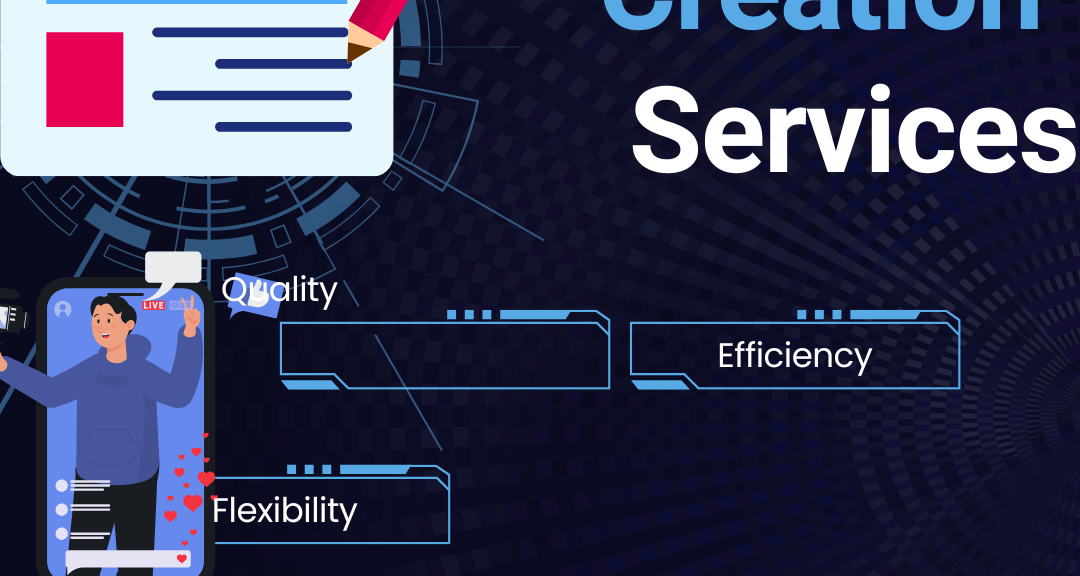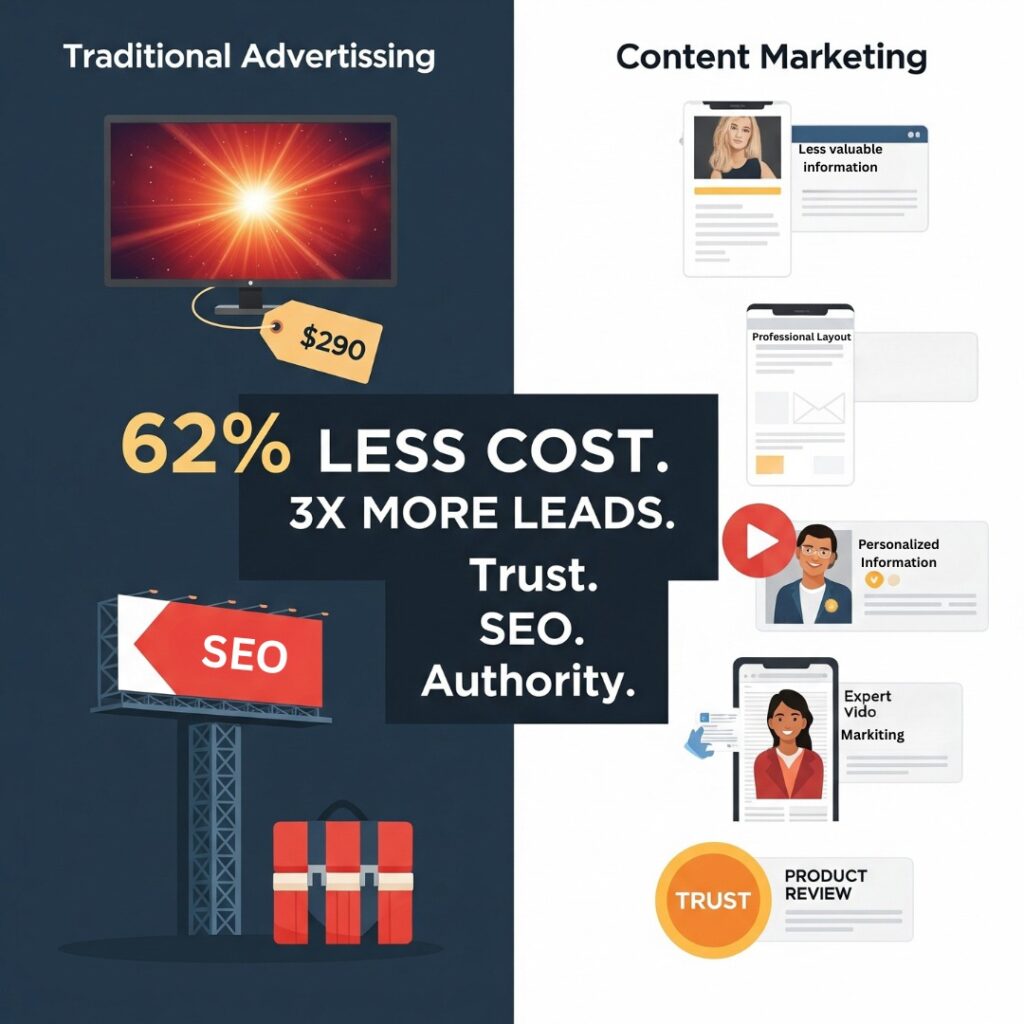
Why Content Marketing is a Game-Changer
What’s more, in a world increasingly governed by time, content marketing is not merely an aphorism or buzzword; it is the lifeline of any successful brand. As a small business owner or a freelancer or an aspiring marketer, being able to do just about any form of content marketing on your own can open up a Pandora’s box of opportunities.

So where should one start?
This guide is for beginners but comes with the seasoned view from 5+ years in marketing. It is going to take you through everything that you require to kick-start your content marketing career boldly and successfully.
Understanding What Content Marketing Really Is
The Usual Bat’s Nest is an exhilarating jump that introduces elements of the shenanigans.
Whatever the future brings, I must be sure that I will catch up with them.
Content marketing is an art and a science of creating valuable, relevant, and consistent content to attract and engage a clearly defined target audience, thereby driving a profitable customer action. In layman’s terms, this means creating trust and contributing value, then leading people toward a product or service in smooth succession.
It’s NOT just writing blog posts.
It’s NOT bombarding people with ads.
It IS solving your audience’s problems through helpful, engaging content.
Examples of content marketing:
- Blog articles
- YouTube videos
- Infographics
- Podcasts
- Email newsletters
- Ebooks and whitepapers
- Social media posts
Why Content Marketing for Beginners
A question that seems to make those who have only just begun gnash their teeth: Is content marketing really worth all the time and effort?
Here’s why the answer is YES:
- Cost-Effective: Content marketing costs as much as 62% less compared to traditional advertising, but produces up to 300% more leads.
- Builds Trust: People buy from brands they trust, not brands that shout the loudest.
- Long-Term Results: More practiced writing is more effective.
- Better SEO: Content improves your website ranking on Google.
- Establishes Authority: Become the go-to expert in your niche.
Laying the Foundation — Setting Your Goals
All great content marketing strategies start with clear objectives.
Ask yourself:
- What do I want to achieve with content marketing?
- Who is my ideal audience?
- How will I measure success?
Common beginner goals:
- Build brand awareness
- Generate website traffic
- Increase leads or sales
- Grow a social media following
- Educate a community
A superb pointer is to set the SMART goal. SMART, in this context, means that the goal should be Specific, Measurable, Achievable, Relevant, and Time-bound.
Know Your Audience Inside-Out
The secret to great content? Deep audience understanding.
Steps to know your audience:
- Create Buyer Personas: Age, interests, problems, dreams, fears.
- Use Surveys and Polls: Directly ask what your audience wants.
- Research Online: Check forums, Quora, Reddit, social media groups.
Example:
It may be advisable to complete an online survey to find your target demographic, i.e. users 20- to 35-years-old who care about fitness but find it challenging to incorporate regular yet effortful home workout routines.
Golden Rule:
“Write for the audience’s needs, not for your spam-like or salvaged content.”
Choose the Right Content Types
Different content types work for different goals and audiences.
Blog Posts — Great for SEO and building authority
Videos — Perfect for engagement and explaining complex ideas
Social Media Posts — Ideal for building a loyal community
Infographics — Simplify data visually
Email Newsletters — Nurture relationships over time
Ebooks — Lead magnets for building an email list
Here’s a trick: To begin with, stick to one or two formats because it’s important you are able to manage everything efficiently before you aspire to expand.
Crafting a Winning Content Strategy
Without a strategy, you’re just posting randomly. Here’s how to build one:
1. Content Audit (if you have existing content)
- What worked?
- What needs improvement?
- What can be repurposed?
2. Topic Brainstorming
Use tools like:
- Google Trends
- AnswerThePublic
- Ubersuggest
Brainstorm topics your audience is searching for.
3. Keyword Research
Find SEO keywords using:
- SEMrush
- Ahrefs
- Ubersuggest
- Google Keyword Planner
Concentrate more on long-tail keywords (for example, “best home workouts for beginners.”)
4. Content Calendar
Plan what you’ll post and when.
Example Weekly Plan:
- Monday: Blog post
- Wednesday: Instagram reel
- Friday: Email newsletter
Consistency beats bursts of random effort.
How to Create Powerful Content
Now, the fun part: creation.
Tips for creating high-quality content:
- Hook Your Audience Fast: First 5 seconds matter.
- Be Clear, Not Clever: Simplicity wins.
- Solve Problems: Focus on the audience’s needs.
- Use Visuals: Images, GIFs, videos.
- Make it Actionable: Give real steps or advice.
- Optimize for SEO: Naturally include keywords, meta titles, meta descriptions, H1, H2, H3 tags.
Structure of a Great Blog Post:
- Attention-grabbing title
- Engaging introduction
- Clear subheadings
- Short paragraphs
- Actionable conclusion
Promoting Your Content Like a Pro
Creating content is half the battle. Promoting it wins the war.
Promotion Strategies:
- Share on all your social media platforms
- Send to your email list
- Collaborate with influencers
- Answer related questions on Quora and link back
- Guest post on other blogs
- Repurpose content into different formats (video, infographic, slideshow)
💡 Pro Tip: Spend as much time promoting your content as you did creating it.
Measuring and Improving
You can’t improve what you don’t measure.
Key Metrics to Track:
- Website traffic
- Bounce rate
- Time on page
- Email open rates
- Social shares and comments
- Lead generation
Tools to use:
Analyze. Learn. Adjust. Grow.
Common Beginner Mistakes to Avoid
Posting without a plan
Writing for yourself instead of your audience
Ignoring SEO basics
Being inconsistent
Expecting instant results
Success for the marketing content requires patience, training, and constant paydown.
The initial stage of embarking on content marketing for beginners might seem hectic. But you are now looking at a well-organized, professional road-map. Follow those steps, remain steady at it, and improve. In the course of time, you will not only attract an audience, but develop a community and a brand to know true success in business.



